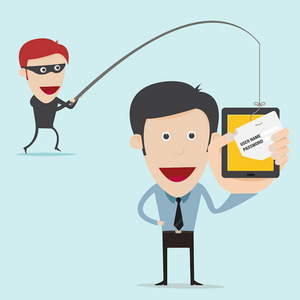
We recently released a quiz comprising some basic question to test your cyber security knowledge. Care to put yourself to the test and find out how 1000 participants faired?
The idea of the quiz is to test home users on their cyber security knowledge and, as the results will highlight, display the lack of cyber security awareness.
Without further ado onto the quiz. The quiz works on an honour system so note down your answers and mark yourself at the end.
QUESTION 1: Which of the following statements are true and which are false?
- If I have an anti-virus I am fully protected and don’t need anything else to surf safely. True or false?
- Passwords should be at least 12 characters long with special characters and lots of numbers to be effective. True or false?
- I don’t visit shady websites so don’t need to be careful when using the internet. True or false?
- It doesn’t matter how old my operating system is, if I am careful where I click I won’t get infected with malware. True or false?
- If I get infected with ransomware, paying the ransom is the only way to get my files back. True or false?
- Clicking ‘unsubscribe’ from spam emails is the best way to stop receiving those emails in future. True or false?
- Following links in social media on my mobile is safe because my phone or tablet cannot be infected by malware. True or false?
- Mac computers are the most heavily targeted by criminals. True or false?
QUESTION 2: Which of the following WI-FI standards do you think is the most secure?
- WPA
- WEP
- WPA2
- 802.11AC
QUESTION 3: What is a Firewall
- A piece of equipment used by fireman to enclose burning buildings
- A piece of software or hardware which helps protect against cyberattacks
- A piece of hardware brought by IT teams to protect computers against fire and theft
QUESTION 4: Do cyber-criminals attack Internet-enabled mobile devices in the same way they attack computers?
- Yes
- No
QUESTION 5: What is vishing?
- A scam when someone calls pretending to be from a reputable organisation in a bid to steal confidential information
- A phishing scam that comes in via text
- A new cybercrime charity
QUESTION 6: What type of malware lets a cybercriminal remotely monitor computer activity without the user’s knowledge?
- A worm
- Spyware
- Adware
- Smishing
QUESTION 7: What does “IoT” stand for?
- In Office Today
- Internet of Technology
- Internet of Things
QUESITON 8: What is a DDoS attack?
- An attack used to deliberately knock a website offline by flooding it with internet traffic
- An attack where a cybercriminal sends out emails containing malicious software that steals a victim’s data
- An attack against an organisation that targets every single one of its employees
QUESTION 9: What is phishing?
- Catching a fish
- An email that tricks you into opening a file or opening a link which contains malware
- A new piece of technology for the fishing industry
Our survey says…
Well done! Take a breather. Have a well-deserved cup of tea the test is over. Before you check your answers perhaps you’d be curious to know how 1000 other participants faired.
Considering how much of a threat it is to the average Internet user, reassuringly 87% of those asked knew what phishing was.
However it wasn’t all sunshine and roses: a shocking 23% believed that having anti-virus software installed fully protected them online and only 29% understood the need for complex passwords.
16% felt that so long as they avoided shady sites they don’t need to be careful online and only an encouraging 5% thought that paying a ransomware fee was their only option.
Considering the widespread use of IoT devices or Internet of Things it’s interesting that only 28% knew what the acronym stood for, whereas it’s highly likely that the vast majority of them have at least one IoT compatible device.
Mark James, ESET security specialist, also had a few things to say on the matter.
“Our study has shown that consumers are still very behind in terms of cyber awareness and could be putting themselves, and the organisations they work for, at risk.
“Phishing is without a doubt one of the biggest threats to consumers so it is very reassuring to see that the majority are aware of the threat.
“However, consumers need to understand that antivirus is only part of the solution, they also need to be careful where they click. Cybercriminals are constantly revolutionising threats to make them even harder to detect and you can never be 100% secure.”
What did you score? Did any questions completely stump you?
Join the ESET UK LinkedIn Group and stay up to date with the blog. If you’re interested in seeing where ESET has been featured in the news then check out our ‘In the news’ section.
Are you Serious about Security? If you are then check out everything that’s going on during Security Serious week.
The Answers
- Question 1: All answers are false, excluding statement 2 which it true
- Question 2: 3
- Question 3: 2
- Question 4: 1
- Question 5: 1
- Question 6: 2
- Question 7: 3
- Question 8: 1
- Question 9: 2